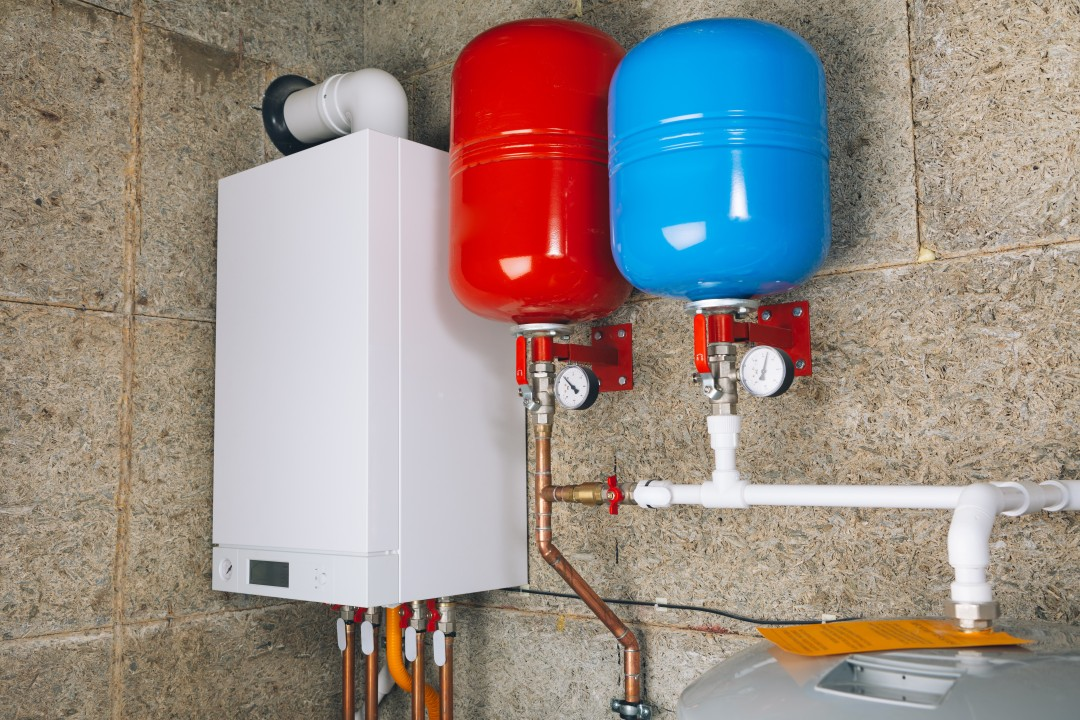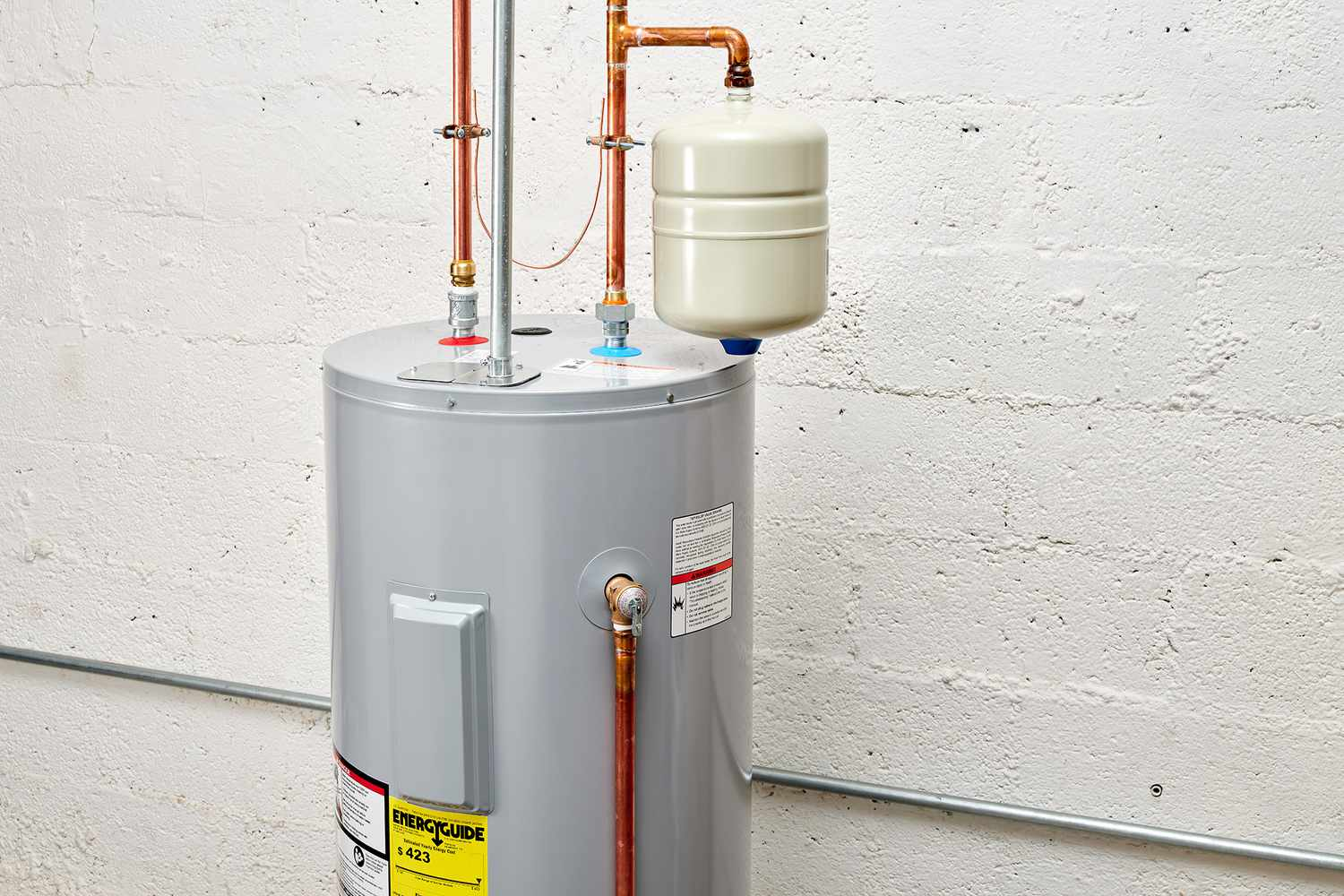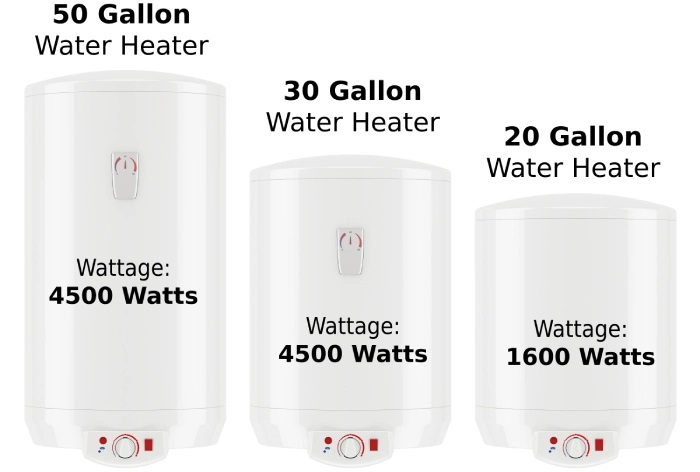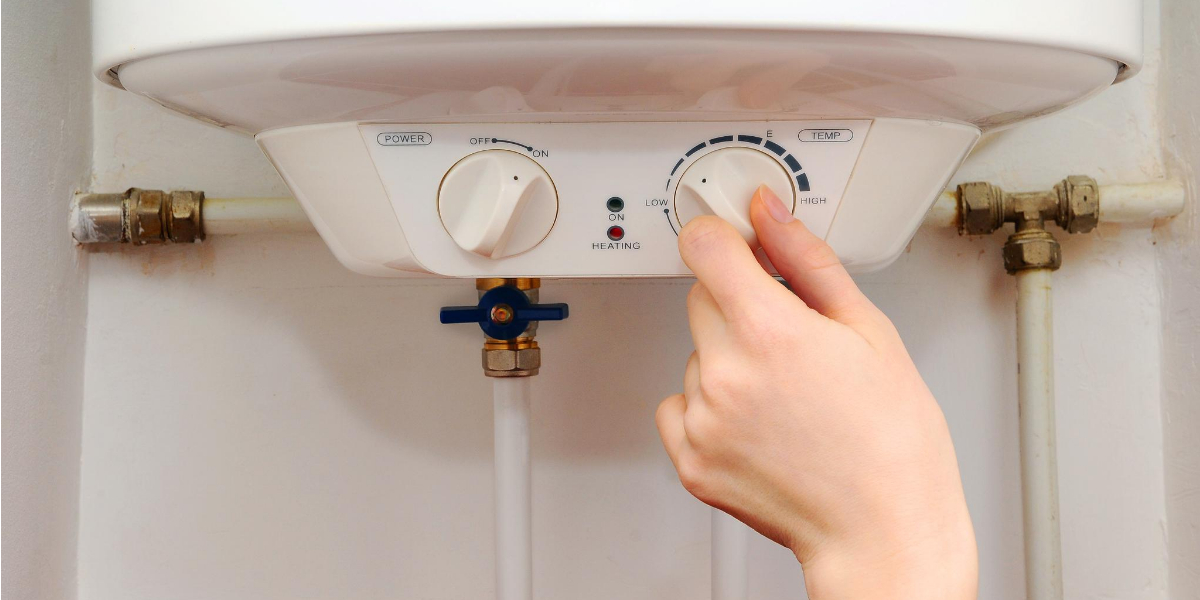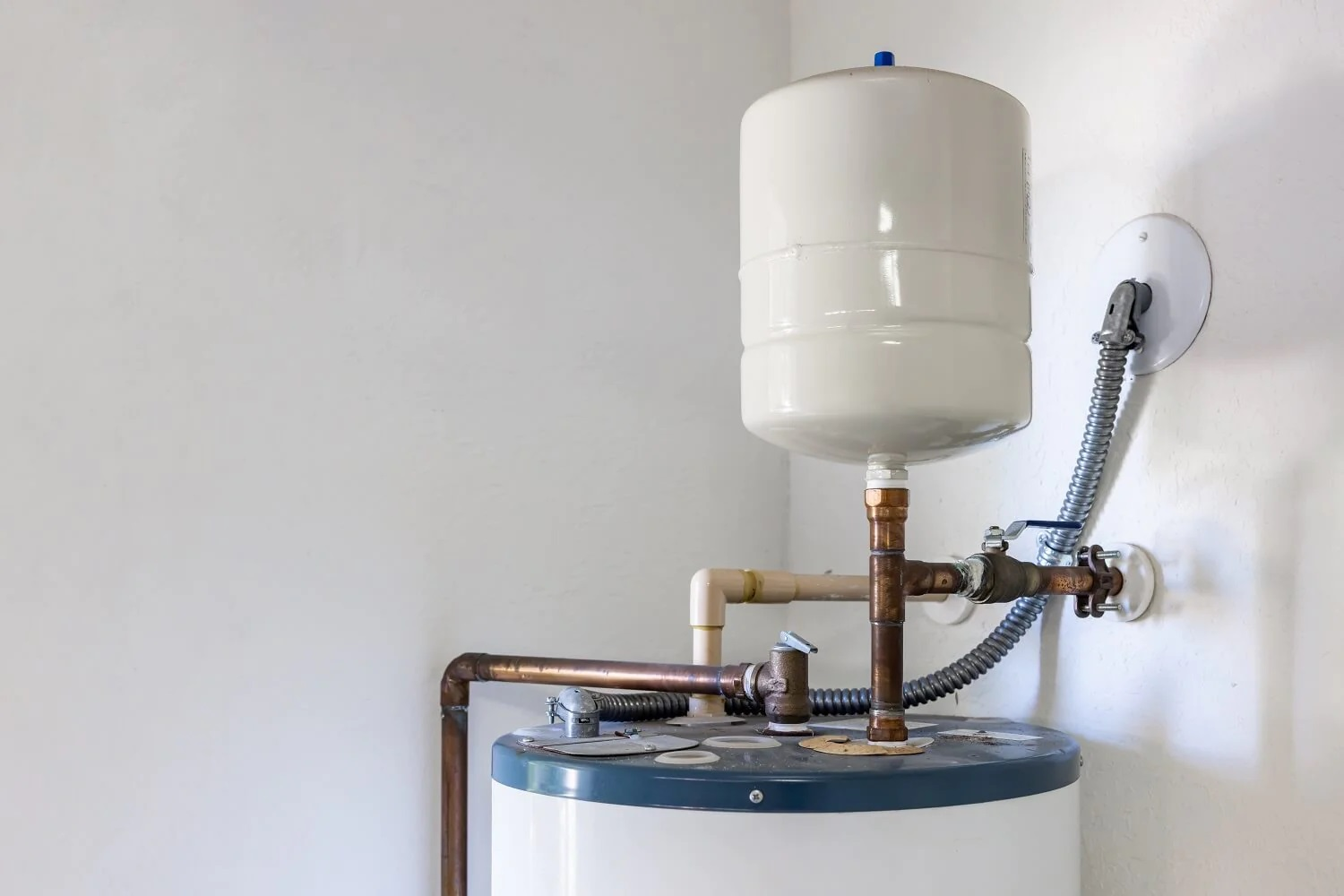Everyone needs hot water, whether for showers, laundry, or cleaning dishes. However, this daily life essential can consume a lot of energy and cost a significant amount of money. A hot water heater is one of the highest energy-consuming appliances in your home.
On average, a water heating system consumes 20% of the total energy use. Therefore, calculating how much power you use to heat water will give you the information you need to reduce energy bills by improving efficiency. So, how much electricity does a water heater use?
In this blog article, we discuss the energy consumption and costs of a water heater and the factors affecting its electricity consumption and offer tips on minimizing energy usage. Dive in!
How Much Electricity Does a Water Heater Use?
The electricity an electric water heater uses depends on various factors, including the size and age of the water tank, the temperature it is set at, the energy-efficiency rating of the model, and how much water is used. Typically, an average electric water heater will consume 4,000 watts.
Image Source: linkedin.com
To know how much power your water heater consumes, you need to know how many hours the heater runs per day. Therefore, assuming your 4,000-watt water heater runs for 3 hours per day, then your water heater energy consumption would be calculated as follows;
Change the watts to kilowatts by dividing by 1000
Therefore, 4,000 ÷ 1000 = 4 kW
To get the power consumed in 3 hours;
Power consumed per day = kW x Hours
4kW x 3h = 12kWh
You’ll multiply the daily energy usage by 30 days to get the total monthly energy consumption.
Therefore, 12kWh x 30 = 360kWh
However, water heaters, whether gas, heat pump, or electric, consume energy even when idle. So, the energy consumed in an idle state will also contribute to the total energy consumption of the water heater.
How Much Electricity Does a Water Heater Consume When It Is Idle?
Water heaters’ temperatures are normally higher than their surroundings’. Therefore, they start cooling down when they are idle. To prevent this and keep the water hot, water heaters consume electricity even when not in use. This energy usage is measured by the thermal dispersion at 65 degrees Celsius and is expressed in kWh/24hr.
Most water heaters have an average thermal dispersion between 1 and 2 kWh/24 hr. This means that electric water heaters use between 1 and 2 kWh every hour when they are idle.
How Much Does it Cost to Run an Electric Water Heater?
Image Source: thespruce.com
The hot water heater cost will depend on your supplier’s average electricity prices. The price is normally charged per kWh. Therefore, assuming an average rate of $0.11 per kilowatt hour, the cost of running an electric water heater consuming 12kWh per day would be;
Cost = Power consumed x Price rates
Therefore, 12kWh x $0.11 = $1.32
To calculate how much heating water with an electric water heater costs monthly, you should include the cost incurred when the electric water heater is idle. Assuming your water heater consumes 2kWh/ 24hr when idle
This will cost you 2kWh x $0.11 = $0.22
Therefore, your daily cost is $1.32 + $0.22 = $1.54
To get the monthly cost, multiply the daily cost by 30 days
Therefore, the total monthly cost of running an average water heater will be
$1.54 x 30 days = $46.2
Of course, your monthly energy bill will depend on how long you run your water heater, which depends on your consumption. However, if you opt for a water heater system with a high energy efficiency rating, you can expect the energy consumption to be less than it would be if you chose a less efficient model. This will significantly reduce your water heating costs.
Factors Affecting Water Heater Electricity Consumption
Image Source: learnmetrics.com
1. Energy Efficiency Rating
A water heater’s efficiency is rated by the energy factor (EF). EF determines how much hot water a tank can make with its current wattage. The specification or user’s manual usually indicates a water heater’s EF rating. Older water heater models don’t use advanced features and technology. Thus, their EF rating is usually lower. Conversely, the latest models have a high-efficiency rating.
You should look for water heaters with high EF ratings between 0.5 and 0.7. Lower EF ratings mean higher energy consumption, resulting in a higher electricity bill.
2. Temperature
Water heaters usually have a set temperature to which the water should be heated. The amount of energy consumed depends on this preset temperature. Most water heaters raise the water’s temperature to 140 degrees Fahrenheit. If you raise the preset temperature to 150 degrees Fahrenheit, the electricity consumption will be higher than when the preset temperature is 130 degrees Fahrenheit.
Therefore, you should try to keep the preset temperature as low as possible to provide the comfort level you need.
3. Water Heater Size
The size of the water heater tank depends on the heater’s heating/cooling capacity. Larger water heaters consume more energy. However, you should be careful when selecting a water heater capacity for your household. For instance, if you select a larger capacity heater for a small family, it will require more power to heat a larger volume of water, which may not be needed.
Most water heater manufacturers usually have a chart indicating the right water heater capacity depending on the family size. Here are the typical requirements for different-sized households:
- 1 to 4 people: 40-gallon (151.42 litres) tank
- 4 to 6 people: 50-gallon (189.27 litres) tank
- 6 to 8 people: 75-gallon ( 283.91 litres) tank
4. Water Heater Age
An electric water heater should last approximately ten years. However, this may vary depending on the water heater brand, maintenance, installation, and model. Generally, a water heater tank is energy efficient when it’s new, and after ten years of use, the energy consumption increases. Therefore, while you may not want to replace a functional appliance, replacing your water heater after using it for over ten years is highly recommended.
5. Model Type
Electric water heaters come in tankless (on-demand) and tank heater varieties. Tank heater models heat the water whether or not you use it. On the other hand, tankless water heaters heat the water only when needed rather than storing it in a reservoir kept hot at all times.
Tankless water heater models are more energy efficient than traditional hot water heaters. Since they don’t heat water when you are not using it, tankless heaters may run for only two hours a day. However, the amount of electricity these water heaters use will still depend on your household’s demand.
How to Minimize Water Heater’s Energy Consumption
Image Source: tanklessexperinsc.com
1. Turn Down the Thermostat
Many water heaters have a preset temperature of 140 degrees, but experts claim this is higher than necessary. 120 degrees is high enough for most household uses, creating less scalding risk.
2. Don’t Linger too Long in the Shower
A hot shower can be a relaxing pleasure. However, limit your bathing time and avoid 20—or 30-minute showers. One tip to reduce water consumption is turning the shower off while soaping up and then restoring the flow to rinse off.
3. Install Low-Flow Faucets and Shower Heads
low flow shower heads and faucets save a lot of water, which reduces the utility bill and the energy a water heater uses to warm all that water flowing through the fixtures. The less water flowing through your fixtures, the less energy is needed to heat it. Low-flow showerheads and faucets are cheap and easy to install and are highly recommended for lowering carbon footprint and saving on electricity costs.
3. Insulate Your Tank
insulating your water heater is an excellent way to improve its efficiency. You can use an inexpensive insulation blanket to help your water tank retain heat, making it expend less energy and warm the water back up again.
4. Find a Tank Size Suitable for Your Family
You should have a water heater large enough to handle your household’s demand but not so large to waste energy heating water you don’t need. Check the Department of Energy’s guide to sizing a new water heater to help calculate the gallons you need in an hour, and find a water heater model with a matching first-hour rating.
5. Upgrade to a More Efficient Model
Efficiency technology is constantly improving, so the next time you need to buy a new hot water heater, you’ll be able to shave a few dollars off your bills by investing in a model with the Energy Star label, promising to be among the more modest energy consumers on the market.
6. Favor the Dishwasher over Handwashing
While dishwashers use their share of energy, they use less hot water than washing dishes by hand, especially if you have a high-efficiency unit and wait to run it until you have a full load of dirty dishes.
7. Cold Wash Your Laundry
There are many advantages to cold washing your laundry. And most experts suggest you get your clothes as clean as possible with cold water. Heating laundry water is among the most energy-demanding activities in your home. So why not save some money–and lower your carbon footprint–by washing on cold.
Electric Water Heaters Vs. Gas Water Heaters
Electric water heaters are more energy-efficient than gas water heaters in several ways. First, an electric water heater only heats water when necessary, while gas water heaters consume energy by keeping water permanently warm, even when it isn’t needed. This results in energy wastage.
Additionally, in electric water heaters, the distance between the hot water system and the tap is usually very short, meaning very little heat is lost. On the other hand, gas systems tend to lose more heat through the pipework, especially if they’re in an unheated part of the house, for instance, in the roof space. This results in inefficient heat retention and energy wastage.
Electric water heaters also give you more control over how much energy you’re using as you can preset the temperature and the flow rate. Some also allow you to monitor electricity consumption. You can even get water heaters with automatic water volume controls and eco functions, which help to improve energy efficiency and keep costs down.
Electric Water Heaters Vs. Heat Pump Water Heaters
Heat pump systems are more energy efficient than electric or gas hot water heater systems. This is because they use a fan and a compressor to move heat from one point to another, unlike the electric water heaters, where elements flow through a wire to transfer heat to the water.
When electrons and atoms collide, resistance occurs, which generates heat to warm the water. This is not the case with heat pump water heaters. Hence they consume less electricity since there’s no resistance to overcome.
Conclusion on Water Heater’s Electricity Consumption
Image Source: waterheatingdirect.com
Hot water heaters are essential for daily living. However, their energy consumption can significantly increase your energy bills. Water heater’s energy usage may vary depending on individual households, preset temperature, and Energy Factor ratings, among other factors. Luckily, you can use several easy and quick fixes to minimize the amount of electricity a water heater uses. But most importantly, you should invest in more efficient equipment.


